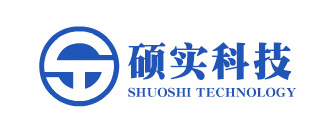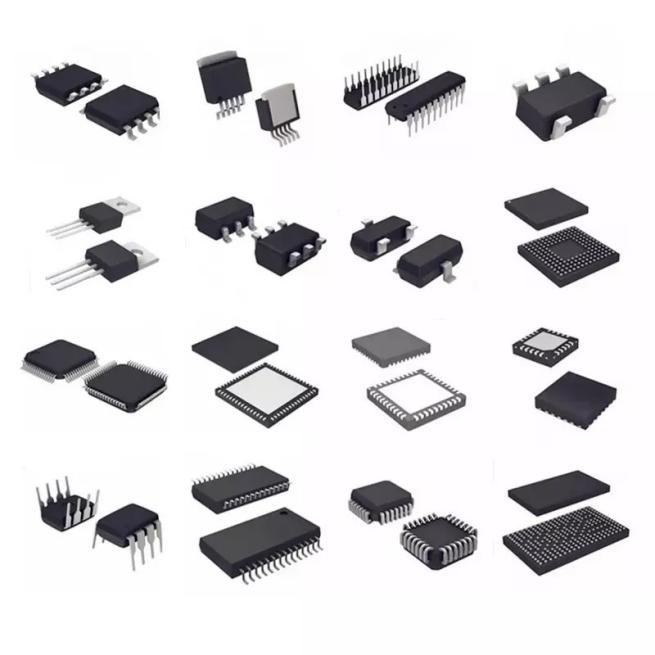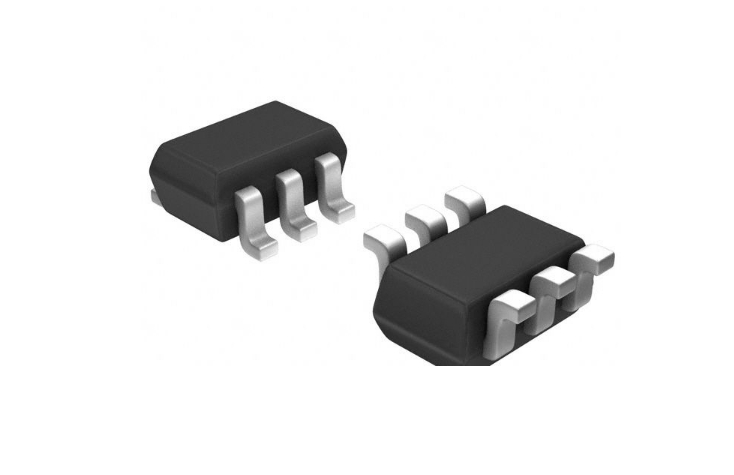
An Article to Help You Understand What is PMICRMS to DC Converter IntroductionIn modern electronic devices, power management is a crucial aspect. With the continuous advancement of technology, electronic devices are becoming more complex in functionality, and the requirements for power are also increasing. As an important component of Power Management Integrated Circuits (PMIC), the PMICRMS to DC converter plays a key role in converting alternating current (AC) to direct current (DC). This article aims to delve into the working principle, components, types, applications, and advantages of PMICRMS to DC converters, helping readers better understand the importance of this technology in modern electronic devices. Part One: Basic Concepts of PMICRMS to DC Converter 1. DefinitionPMICRMS (Power Management Integrated Circuit with RMS) refers to an integrated circuit specifically designed for managing power distribution and conversion. A DC converter is a device that converts the input voltage of power (usually AC) into stable direct current output. The function of the PMICRMS to DC converter is to convert the voltage and frequency of the AC power into DC voltage suitable for electronic devices, ensuring the stable operation of the devices. 2. Working PrincipleThe working process of the PMICRMS to DC converter can be divided into several main steps. Firstly, the input AC power is preliminarily adjusted in voltage through a transformer. Then, the rectifier converts the AC power into DC power, usually using diodes for rectification. Subsequently, the filter smooths the rectified DC power to remove fluctuations and noise. Finally, the regulator ensures the stability of the output voltage to meet the device's requirements. Part Two: Components of PMICRMS to DC Converter 1. Main ComponentsTransformer: Used to adjust the input voltage's magnitude to ensure it is suitable for subsequent rectification and filtering processes.Rectifier: Converts AC power to DC power, common rectifiers include bridge rectifiers and single diode rectifiers.Filter: Smooths the rectified DC power, usually using a combination of capacitors and inductors.Regulator: Ensures the stability of the output voltage, common regulators include linear regulators and switch-mode regulators. 2. Control CircuitThe control circuit plays a crucial role in the PMICRMS to DC converter. It is responsible for monitoring the output voltage and adjusting the input signal through feedback mechanisms to ensure the output voltage remains within the set range. The design of the control circuit directly affects the efficiency and stability of the converter. Part Three: Types of PMICRMS to DC Converter 1. Linear DC ConverterLinear DC converters are simple power converters that work by adjusting the input voltage to obtain the desired output voltage. Their advantages include simple circuitry, low noise, and stable output voltage. However, the downside is that they have lower energy conversion efficiency, especially when there is a significant difference between the input and output voltages, which can lead to heat generation. 2. Switching DC ConverterSwitching DC converters control the on-off of input current through fast switching to achieve voltage regulation. Their advantages include high energy conversion efficiency, suitable for high-power applications. However, their design is relatively complex and may generate electromagnetic interference (EMI). 3. Comparison and SelectionWhen choosing a PMICRMS to DC converter, the decision to use a linear converter or a switching converter depends on the specific application. Linear converters are suitable for noise-sensitive applications such as audio devices, while switching converters are more suitable for applications with high efficiency requirements, such as electric vehicles and high-performance computing devices. Part Four: Applications of PMICRMS to DC Converter 1. Consumer ElectronicsPMICRMS to DC converters are widely used in power management in consumer electronic products such as smartphones, tablets, etc. They effectively convert battery power into different voltages required by the devices, ensuring the normal operation of the devices. 2. Industrial EquipmentIn industrial equipment such as automation devices and sensors, PMICRMS to DC converters are used to provide stable power, ensuring the reliability and stability of the equipment in various working environments. 3. Automotive ElectronicsWith the popularity of electric vehicles, PMICRMS to DC converters are increasingly being used in automotive electronic systems. They are used not only in the power systems of electric vehicles but also in the charging systems to ensure efficient charging and discharging of batteries. 4. Medical DevicesThe application of PMICRMS to DC converters is crucial in medical devices. Life monitoring instruments and other medical devices require stable power to ensure their accuracy and reliability. Part Five: Advantages of PMICRMS to DC Converter 1. High EfficiencyPMICRMS to DC converters have high energy conversion efficiency, effectively reducing energy loss and heat generation. This is particularly important for devices that need to operate for long periods. 2. MiniaturizationAs electronic devices move towards miniaturization and lightweight design, the design of PMICRMS to DC converters is continuously optimized to meet the modern electronic devices' volume requirements. This miniaturized design enhances the flexibility of device design. 3. Intelligent ManagementBy implementing intelligent power management through integrated circuits, PMICRMS to DC converters can dynamically adjust power output according to the actual needs of the device, improving system stability and reliability. Part Six: Future Development Trends 1. Technological AdvancementsWith the emergence of new materials and technologies, the performance of PMICRMS to DC converters will further improve. For example, the application of wide bandgap semiconductor materials will allow converters to maintain high efficiency under high temperature and high-frequency conditions. 2. Market DemandWith the proliferation of electronic devices, the market demand for efficient power management will continue to grow. It is expected that in the coming years, the market for PMICRMS to DC converters will experience rapid development, especially in areas such as electric vehicles, wearable devices, and smart homes. ConclusionPMICRMS to DC converters play an indispensable role in modern electronic devices. They not only improve the efficiency of power management but also provide assurance for the stable operation of various devices. With the continuous advancement of technology and the growing market demand, the application prospects of PMICRMS to DC converters will be broader. We encourage readers to pay attention to the progress and application of power management technology to better understand and utilize this important technology. References1. R. W. Erickson, D. Maksimovic, "Fundamentals of Power Electronics," 2nd Edition, Springer, 2001.2. B. Razavi, "Design of Analog CMOS Integrated Circuits," McGraw-Hill, 2001.3. "Power Management Integrated Circuits," Texas Instruments, [Online Resource](https://www.ti.com/power-management/overview.html).4. "Switching Power Supply Design," Robert W. Erickson, 2007. An Article to Help You Understand What is PMICRMS to DC Converter IntroductionIn modern electronic devices, power management is a crucial aspect. With the continuous advancement of technology, electronic devices are becoming more complex in functionality, and the requirements for power are also increasing. As an important component of Power Management Integrated Circuits (PMIC), the PMICRMS to DC converter plays a key role in converting alternating current (AC) to direct current (DC). This article aims to delve into the working principle, components, types, applications, and advantages of PMICRMS to DC converters, helping readers better understand the importance of this technology in modern electronic devices. Part One: Basic Concepts of PMICRMS to DC Converter 1. DefinitionPMICRMS (Power Management Integrated Circuit with RMS) refers to an integrated circuit specifically designed for managing power distribution and conversion. A DC converter is a device that converts the input voltage of power (usually AC) into stable direct current output. The function of the PMICRMS to DC converter is to convert the voltage and frequency of the AC power into DC voltage suitable for electronic devices, ensuring the stable operation of the devices. 2. Working PrincipleThe working process of the PMICRMS to DC converter can be divided into several main steps. Firstly, the input AC power is preliminarily adjusted in voltage through a transformer. Then, the rectifier converts the AC power into DC power, usually using diodes for rectification. Subsequently, the filter smooths the rectified DC power to remove fluctuations and noise. Finally, the regulator ensures the stability of the output voltage to meet the device's requirements. Part Two: Components of PMICRMS to DC Converter 1. Main ComponentsTransformer: Used to adjust the input voltage's magnitude to ensure it is suitable for subsequent rectification and filtering processes.Rectifier: Converts AC power to DC power, common rectifiers include bridge rectifiers and single diode rectifiers.Filter: Smooths the rectified DC power, usually using a combination of capacitors and inductors.Regulator: Ensures the stability of the output voltage, common regulators include linear regulators and switch-mode regulators. 2. Control CircuitThe control circuit plays a crucial role in the PMICRMS to DC converter. It is responsible for monitoring the output voltage and adjusting the input signal through feedback mechanisms to ensure the output voltage remains within the set range. The design of the control circuit directly affects the efficiency and stability of the converter. Part Three: Types of PMICRMS to DC Converter 1. Linear DC ConverterLinear DC converters are simple power converters that work by adjusting the input voltage to obtain the desired output voltage. Their advantages include simple circuitry, low noise, and stable output voltage. However, the downside is that they have lower energy conversion efficiency, especially when there is a significant difference between the input and output voltages, which can lead to heat generation. 2. Switching DC ConverterSwitching DC converters control the on-off of input current through fast switching to achieve voltage regulation. Their advantages include high energy conversion efficiency, suitable for high-power applications. However, their design is relatively complex and may generate electromagnetic interference (EMI). 3. Comparison and SelectionWhen choosing a PMICRMS to DC converter, the decision to use a linear converter or a switching converter depends on the specific application. Linear converters are suitable for noise-sensitive applications such as audio devices, while switching converters are more suitable for applications with high efficiency requirements, such as electric vehicles and high-performance computing devices. Part Four: Applications of PMICRMS to DC Converter 1. Consumer ElectronicsPMICRMS to DC converters are widely used in power management in consumer electronic products such as smartphones, tablets, etc. They effectively convert battery power into different voltages required by the devices, ensuring the normal operation of the devices. 2. Industrial EquipmentIn industrial equipment such as automation devices and sensors, PMICRMS to DC converters are used to provide stable power, ensuring the reliability and stability of the equipment in various working environments. 3. Automotive ElectronicsWith the popularity of electric vehicles, PMICRMS to DC converters are increasingly being used in automotive electronic systems. They are used not only in the power systems of electric vehicles but also in the charging systems to ensure efficient charging and discharging of batteries. 4. Medical DevicesThe application of PMICRMS to DC converters is crucial in medical devices. Life monitoring instruments and other medical devices require stable power to ensure their accuracy and reliability. Part Five: Advantages of PMICRMS to DC Converter 1. High EfficiencyPMICRMS to DC converters have high energy conversion efficiency, effectively reducing energy loss and heat generation. This is particularly important for devices that need to operate for long periods. 2. MiniaturizationAs electronic devices move towards miniaturization and lightweight design, the design of PMICRMS to DC converters is continuously optimized to meet the modern electronic devices' volume requirements. This miniaturized design enhances the flexibility of device design. 3. Intelligent ManagementBy implementing intelligent power management through integrated circuits, PMICRMS to DC converters can dynamically adjust power output according to the actual needs of the device, improving system stability and reliability. Part Six: Future Development Trends 1. Technological AdvancementsWith the emergence of new materials and technologies, the performance of PMICRMS to DC converters will further improve. For example, the application of wide bandgap semiconductor materials will allow converters to maintain high efficiency under high temperature and high-frequency conditions. 2. Market DemandWith the proliferation of electronic devices, the market demand for efficient power management will continue to grow. It is expected that in the coming years, the market for PMICRMS to DC converters will experience rapid development, especially in areas such as electric vehicles, wearable devices, and smart homes. ConclusionPMICRMS to DC converters play an indispensable role in modern electronic devices. They not only improve the efficiency of power management but also provide assurance for the stable operation of various devices. With the continuous advancement of technology and the growing market demand, the application prospects of PMICRMS to DC converters will be broader. We encourage readers to pay attention to the progress and application of power management technology to better understand and utilize this important technology. References1. R. W. Erickson, D. Maksimovic, "Fundamentals of Power Electronics," 2nd Edition, Springer, 2001.2. B. Razavi, "Design of Analog CMOS Integrated Circuits," McGraw-Hill, 2001.3. "Power Management Integrated Circuits," Texas Instruments, [Online Resource](https://www.ti.com/power-management/overview.html).4. "Switching Power Supply Design," Robert W. Erickson, 2007.
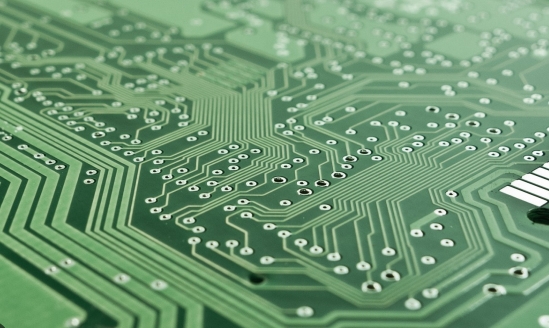
What is a DC Converter and What Does It Do? IntroductionIn modern electronic devices, the stability and reliability of DC power are crucial. As an important power management device, a DC converter can convert one DC voltage into another DC voltage, and is widely used in various electronic products and systems. Whether it's a mobile phone, tablet, electric vehicle, or renewable energy system, DC converters play an indispensable role. This article will delve into the basic concepts, types, application areas, design considerations, and future trends of DC converters. Two, Basic Concepts of DC Converters 1. What is a DC ConverterA DC converter is a power conversion device mainly used to convert input DC voltage into the required output DC voltage. Its basic function is to regulate voltage to meet the power requirements of different electronic devices. DC converters are widely used, from simple battery-powered devices to complex industrial automation systems, all rely on this power management technology. 2. Working Principle of DC ConvertersThe working principle of a DC converter is based on the combination of inductors, capacitors, and switch elements. Its basic circuit structure usually includes input power, switch elements (such as MOSFETs), inductors, capacitors, and output loads. The working process can be divided into the following basic steps:1. **Switch Control**: The switch element periodically opens and closes to control the flow of current.2. **Energy Storage**: When the switch is open, current flows through the inductor, storing energy; when the switch is closed, the inductor releases the stored energy to power the output load.3. **Voltage Regulation**: By adjusting the duty cycle of the switch (the ratio of the time the switch is open to the total period), precise control of the output voltage can be achieved. Three, Types of DC ConvertersDC converters are mainly divided into the following types based on their functions and working principles: 1. Boost ConverterThe main function of a boost converter is to increase the input voltage to a higher output voltage. Its working principle involves storing energy in an inductor and releasing the energy to the output terminal when the switch is closed. Boost converters are widely used in devices that require high voltage, such as LED driver power supplies and portable electronic devices. 2. Buck ConverterConversely, a buck converter's main function is to reduce the input voltage to the required output voltage. By controlling the duty cycle of the switch, a buck converter can effectively regulate the output voltage. Buck converters are widely used in battery-powered devices such as mobile phones and laptops. 3. Buck-Boost ConverterThe buck-boost converter combines the functions of boosting and bucking, allowing it to work properly when the input voltage is higher or lower than the output voltage. This flexibility makes the buck-boost converter important in power management, especially in battery management systems. 4. Comparison of Linear Regulators and Switching RegulatorsLinear regulators and switching regulators are two common types of voltage regulators. Linear regulators work simply and provide stable output voltage, but have lower efficiency, especially when there is a large difference between input and output voltages. Switching regulators achieve high efficiency through switch control, but the design is relatively complex. Each has its own advantages and disadvantages, and the choice should be balanced based on specific application scenarios. Four, Application Areas of DC ConvertersDC converters are widely used in various fields, including: 1. Consumer ElectronicsIn consumer electronics, DC converters are widely used in devices such as mobile phones, tablets, and laptops. These devices often require different voltage power supplies, and DC converters can effectively meet these needs to ensure the normal operation of the devices. 2. Industrial EquipmentDC converters also play an important role in industrial automation equipment and sensors. They can provide stable power to ensure the reliability and stability of equipment in various working environments. 3. Electric VehiclesThe battery management system of electric vehicles requires efficient DC converters to regulate battery voltage and ensure the normal operation of the electric motor and other electronic devices. DC converters play a key role in energy management in electric vehicles. 4. Renewable EnergyIn solar and wind energy systems, DC converters are used to convert generated DC voltage into voltage suitable for storage or use. This application not only improves energy efficiency but also promotes the widespread use of renewable energy. Five, Design Considerations for DC ConvertersWhen designing DC converters, several factors need to be considered to ensure their performance and reliability: 1. EfficiencyImproving the conversion efficiency of DC converters is an important goal in design. High efficiency not only reduces energy loss but also reduces heat generation, thereby improving the overall performance of the system. 2. Thermal ManagementEffective heat dissipation design is crucial because DC converters generate heat during operation. Proper heat dissipation can extend the device's lifespan and ensure stable operation in high-temperature environments. 3. Size and CostAs electronic devices become smaller and lighter, the design of DC converters also needs to balance size and cost. Compact design can improve device portability, while cost control can enhance market competitiveness. 4. Reliability and StabilityThe reliability and stability of DC converters are key factors in ensuring the normal operation of electronic devices. In design, various working environments and load variations should be considered to ensure the stability of DC converter performance under various conditions. Six, Future Trends of DC ConvertersWith the continuous advancement of technology, the technology of DC converters is also evolving, and future trends mainly focus on the following aspects: 1. Application of New MaterialsThe application of new materials, such as Silicon Carbide (SiC) and Gallium Nitride (GaN) technology, is driving the performance improvement of DC converters. These materials have higher conductivity and high-temperature resistance, which can significantly improve conversion efficiency and power density. 2. Intelligence and DigitizationThe introduction of digital control technology makes the control of DC converters more precise and flexible. Through intelligent design, DC converters can monitor and adjust operational status in real-time, improving the overall system performance. 3. Sustainable DevelopmentWith the increasing global emphasis on sustainable development, the design of DC converters is also focusing more on green energy and environmentally friendly design. Efficient DC converters can not only reduce energy consumption but also minimize environmental impact. Seven, ConclusionDC converters play a crucial role in modern electronic devices, and their functions and application scope continue to expand. By gaining a deep understanding of DC converters, we can better grasp their application potential in various fields. In the future, with the development of new materials and intelligent technologies, DC converters will continue to evolve towards high efficiency, reliability, and sustainability, providing better solutions for power management of electronic devices. Eight, References1. Rashid, M. H. (2014). Power Electronics: Circuits, Devices, and Applications. Pearson.2. Mohan, N., Undeland, T. M., & Robbins, W. P. (2003). Power Electronics: Converters, Applications, and Design. Wiley.3. B. Jayant Baliga, "Silicon Carbide Power Devices," IEEE Transactions on Electron Devices, vol. 43, no. 10, pp. 1715-1721, 1996.4. "GaN Power Devices: A New Era in Power Electronics," Power Electronics Technology, 2018.5. "The Future of Power Electronics: Trends and Technologies," IEEE Power Electronics Specialists Conference, 2020.Through the above content, we have a comprehensive understanding of the definition, working principle, types, application areas, design considerations, and future trends of DC converters. This knowledge not only helps us understand the basic functions of DC converters but also provides guidance for practical applications. What is a DC Converter and What Does It Do? IntroductionIn modern electronic devices, the stability and reliability of DC power are crucial. As an important power management device, a DC converter can convert one DC voltage into another DC voltage, and is widely used in various electronic products and systems. Whether it's a mobile phone, tablet, electric vehicle, or renewable energy system, DC converters play an indispensable role. This article will delve into the basic concepts, types, application areas, design considerations, and future trends of DC converters. Two, Basic Concepts of DC Converters 1. What is a DC ConverterA DC converter is a power conversion device mainly used to convert input DC voltage into the required output DC voltage. Its basic function is to regulate voltage to meet the power requirements of different electronic devices. DC converters are widely used, from simple battery-powered devices to complex industrial automation systems, all rely on this power management technology. 2. Working Principle of DC ConvertersThe working principle of a DC converter is based on the combination of inductors, capacitors, and switch elements. Its basic circuit structure usually includes input power, switch elements (such as MOSFETs), inductors, capacitors, and output loads. The working process can be divided into the following basic steps:1. **Switch Control**: The switch element periodically opens and closes to control the flow of current.2. **Energy Storage**: When the switch is open, current flows through the inductor, storing energy; when the switch is closed, the inductor releases the stored energy to power the output load.3. **Voltage Regulation**: By adjusting the duty cycle of the switch (the ratio of the time the switch is open to the total period), precise control of the output voltage can be achieved. Three, Types of DC ConvertersDC converters are mainly divided into the following types based on their functions and working principles: 1. Boost ConverterThe main function of a boost converter is to increase the input voltage to a higher output voltage. Its working principle involves storing energy in an inductor and releasing the energy to the output terminal when the switch is closed. Boost converters are widely used in devices that require high voltage, such as LED driver power supplies and portable electronic devices. 2. Buck ConverterConversely, a buck converter's main function is to reduce the input voltage to the required output voltage. By controlling the duty cycle of the switch, a buck converter can effectively regulate the output voltage. Buck converters are widely used in battery-powered devices such as mobile phones and laptops. 3. Buck-Boost ConverterThe buck-boost converter combines the functions of boosting and bucking, allowing it to work properly when the input voltage is higher or lower than the output voltage. This flexibility makes the buck-boost converter important in power management, especially in battery management systems. 4. Comparison of Linear Regulators and Switching RegulatorsLinear regulators and switching regulators are two common types of voltage regulators. Linear regulators work simply and provide stable output voltage, but have lower efficiency, especially when there is a large difference between input and output voltages. Switching regulators achieve high efficiency through switch control, but the design is relatively complex. Each has its own advantages and disadvantages, and the choice should be balanced based on specific application scenarios. Four, Application Areas of DC ConvertersDC converters are widely used in various fields, including: 1. Consumer ElectronicsIn consumer electronics, DC converters are widely used in devices such as mobile phones, tablets, and laptops. These devices often require different voltage power supplies, and DC converters can effectively meet these needs to ensure the normal operation of the devices. 2. Industrial EquipmentDC converters also play an important role in industrial automation equipment and sensors. They can provide stable power to ensure the reliability and stability of equipment in various working environments. 3. Electric VehiclesThe battery management system of electric vehicles requires efficient DC converters to regulate battery voltage and ensure the normal operation of the electric motor and other electronic devices. DC converters play a key role in energy management in electric vehicles. 4. Renewable EnergyIn solar and wind energy systems, DC converters are used to convert generated DC voltage into voltage suitable for storage or use. This application not only improves energy efficiency but also promotes the widespread use of renewable energy. Five, Design Considerations for DC ConvertersWhen designing DC converters, several factors need to be considered to ensure their performance and reliability: 1. EfficiencyImproving the conversion efficiency of DC converters is an important goal in design. High efficiency not only reduces energy loss but also reduces heat generation, thereby improving the overall performance of the system. 2. Thermal ManagementEffective heat dissipation design is crucial because DC converters generate heat during operation. Proper heat dissipation can extend the device's lifespan and ensure stable operation in high-temperature environments. 3. Size and CostAs electronic devices become smaller and lighter, the design of DC converters also needs to balance size and cost. Compact design can improve device portability, while cost control can enhance market competitiveness. 4. Reliability and StabilityThe reliability and stability of DC converters are key factors in ensuring the normal operation of electronic devices. In design, various working environments and load variations should be considered to ensure the stability of DC converter performance under various conditions. Six, Future Trends of DC ConvertersWith the continuous advancement of technology, the technology of DC converters is also evolving, and future trends mainly focus on the following aspects: 1. Application of New MaterialsThe application of new materials, such as Silicon Carbide (SiC) and Gallium Nitride (GaN) technology, is driving the performance improvement of DC converters. These materials have higher conductivity and high-temperature resistance, which can significantly improve conversion efficiency and power density. 2. Intelligence and DigitizationThe introduction of digital control technology makes the control of DC converters more precise and flexible. Through intelligent design, DC converters can monitor and adjust operational status in real-time, improving the overall system performance. 3. Sustainable DevelopmentWith the increasing global emphasis on sustainable development, the design of DC converters is also focusing more on green energy and environmentally friendly design. Efficient DC converters can not only reduce energy consumption but also minimize environmental impact. Seven, ConclusionDC converters play a crucial role in modern electronic devices, and their functions and application scope continue to expand. By gaining a deep understanding of DC converters, we can better grasp their application potential in various fields. In the future, with the development of new materials and intelligent technologies, DC converters will continue to evolve towards high efficiency, reliability, and sustainability, providing better solutions for power management of electronic devices. Eight, References1. Rashid, M. H. (2014). Power Electronics: Circuits, Devices, and Applications. Pearson.2. Mohan, N., Undeland, T. M., & Robbins, W. P. (2003). Power Electronics: Converters, Applications, and Design. Wiley.3. B. Jayant Baliga, "Silicon Carbide Power Devices," IEEE Transactions on Electron Devices, vol. 43, no. 10, pp. 1715-1721, 1996.4. "GaN Power Devices: A New Era in Power Electronics," Power Electronics Technology, 2018.5. "The Future of Power Electronics: Trends and Technologies," IEEE Power Electronics Specialists Conference, 2020.Through the above content, we have a comprehensive understanding of the definition, working principle, types, application areas, design considerations, and future trends of DC converters. This knowledge not only helps us understand the basic functions of DC converters but also provides guidance for practical applications.
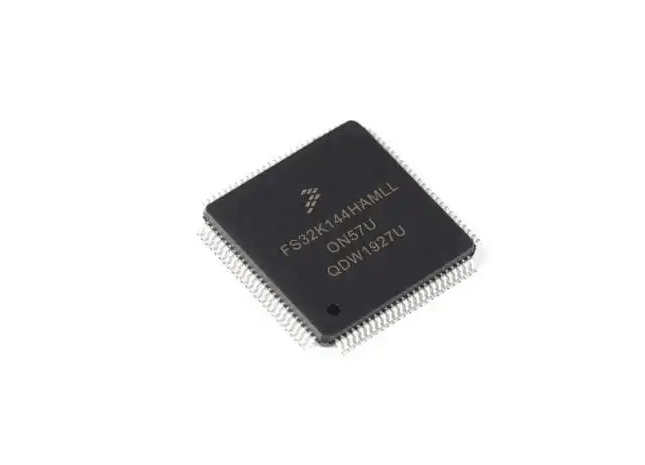
With the popularization and development of electric vehicles, DC-DC converters play an important role as a component of electric vehicles, converting the high-voltage DC battery output into low-voltage DC power to supply various electronic devices in the vehicle. In the market, there are many mainstream models of DC-DC converters for electric vehicles, each with its own characteristics and advantages. This article will compare and analyze several mainstream models of DC-DC converters for electric vehicles, exploring their differences and advantages.First, let's take a look at the basic parameters and characteristics of several mainstream models of DC-DC converters for electric vehicles:1. Model A:
- Input voltage range: 200-450V
- Output voltage range: 12V
- Output power: 3kW
- Efficiency: >95%
- Size: 200mm*150mm*50mm
- Weight: 1kg
- Features: compact and lightweight, high efficiency, suitable for small electric vehicles2. Model B:
- Input voltage range: 300-600V
- Output voltage range: 12V/24V
- Output power: 5kW
- Efficiency: >96%
- Size: 250mm*200mm*60mm
- Weight: 1.5kg
- Features: adjustable output voltage, suitable for medium-sized electric vehicles3. Model C:
- Input voltage range: 400-800V
- Output voltage range: 12V/24V/48V
- Output power: 8kW
- Efficiency: >97%
- Size: 300mm*250mm*80mm
- Weight: 2kg
- Features: high output power, suitable for large electric vehiclesNext, we will compare and analyze these mainstream models of DC-DC converters for electric vehicles:1. Input voltage range:
Model A has an input voltage range of 200-450V, Model B has 300-600V, and Model C has 400-800V. It can be seen that Model C has the widest input voltage range and the most extensive application range.2. Output voltage range:
Model A can only output 12V voltage, Model B can output 12V or 24V voltage, and Model C can output 12V, 24V, or 48V voltage. The different output voltage ranges determine the applicability and flexibility of the converter.3. Output power:
Model A has an output power of 3kW, Model B has 5kW, and Model C has 8kW. The higher the output power, the more electronic devices the converter can supply, and the wider the application range.4. Efficiency:
The efficiency of the three products is above 95%, but Model C has the highest efficiency, reaching 97%. High efficiency means less energy loss, more energy saving, and environmental protection.5. Size and weight:
Model C has the largest size and weight, while Model A is the smallest. The size and weight also affect the overall performance and driving experience of electric vehicles.In conclusion, different models of mainstream DC-DC converters for electric vehicles have differences in input voltage range, output voltage range, output power, efficiency, size, and weight, suitable for different scales and types of electric vehicles. Choosing the right DC-DC converter product can improve the performance and driving experience of electric vehicles, extend battery life, reduce energy consumption, and promote the popularization and development of electric vehicles. Hopefully, this comparative analysis can help consumers choose the right DC-DC converter product for their electric vehicles.With the popularization and development of electric vehicles, DC-DC converters play an important role as a component of electric vehicles, converting the high-voltage DC battery output into low-voltage DC power to supply various electronic devices in the vehicle. In the market, there are many mainstream models of DC-DC converters for electric vehicles, each with its own characteristics and advantages. This article will compare and analyze several mainstream models of DC-DC converters for electric vehicles, exploring their differences and advantages.First, let's take a look at the basic parameters and characteristics of several mainstream models of DC-DC converters for electric vehicles:1. Model A:
- Input voltage range: 200-450V
- Output voltage range: 12V
- Output power: 3kW
- Efficiency: >95%
- Size: 200mm*150mm*50mm
- Weight: 1kg
- Features: compact and lightweight, high efficiency, suitable for small electric vehicles2. Model B:
- Input voltage range: 300-600V
- Output voltage range: 12V/24V
- Output power: 5kW
- Efficiency: >96%
- Size: 250mm*200mm*60mm
- Weight: 1.5kg
- Features: adjustable output voltage, suitable for medium-sized electric vehicles3. Model C:
- Input voltage range: 400-800V
- Output voltage range: 12V/24V/48V
- Output power: 8kW
- Efficiency: >97%
- Size: 300mm*250mm*80mm
- Weight: 2kg
- Features: high output power, suitable for large electric vehiclesNext, we will compare and analyze these mainstream models of DC-DC converters for electric vehicles:1. Input voltage range:
Model A has an input voltage range of 200-450V, Model B has 300-600V, and Model C has 400-800V. It can be seen that Model C has the widest input voltage range and the most extensive application range.2. Output voltage range:
Model A can only output 12V voltage, Model B can output 12V or 24V voltage, and Model C can output 12V, 24V, or 48V voltage. The different output voltage ranges determine the applicability and flexibility of the converter.3. Output power:
Model A has an output power of 3kW, Model B has 5kW, and Model C has 8kW. The higher the output power, the more electronic devices the converter can supply, and the wider the application range.4. Efficiency:
The efficiency of the three products is above 95%, but Model C has the highest efficiency, reaching 97%. High efficiency means less energy loss, more energy saving, and environmental protection.5. Size and weight:
Model C has the largest size and weight, while Model A is the smallest. The size and weight also affect the overall performance and driving experience of electric vehicles.In conclusion, different models of mainstream DC-DC converters for electric vehicles have differences in input voltage range, output voltage range, output power, efficiency, size, and weight, suitable for different scales and types of electric vehicles. Choosing the right DC-DC converter product can improve the performance and driving experience of electric vehicles, extend battery life, reduce energy consumption, and promote the popularization and development of electric vehicles. Hopefully, this comparative analysis can help consumers choose the right DC-DC converter product for their electric vehicles.

A DC-DC converter is an electronic device used to convert DC voltage into different DC voltages. It plays a crucial role in electronic devices, providing stable power supply to ensure the normal operation of the equipment. In this article, we will delve into the principles and working principles of DC-DC converters, and introduce their common schematic diagrams.The principle of a DC-DC converter is to utilize the characteristics of inductors and capacitors to achieve voltage conversion. In a DC-DC converter, there are two main circuit sections: the input section and the output section. The input section receives DC voltage from the power source, and the output section outputs the converted DC voltage. The working principle of the converter is to control the conduction and cutoff of the switch transistor to achieve voltage conversion.The schematic diagram of a DC-DC converter typically includes the following main components:1. Input capacitor: used to smooth the input voltage and prevent voltage fluctuations from affecting the circuit.2. Input inductor: used to limit the input current and prevent circuit overload.3. Switch transistor: used to control the conduction and cutoff of the circuit to achieve voltage conversion.4. Output inductor: used to limit the output current and protect the load.5. Output capacitor: used to smooth the output voltage and provide a stable power supply.The working principle of a DC-DC converter is to achieve voltage conversion by controlling the conduction and cutoff of the switch transistor. When the switch transistor is conducting, the input voltage is transferred to the output through the inductor, causing the output voltage to rise; when the switch transistor is cutoff, the energy in the inductor is released to the output, causing the output voltage to drop. By continuously controlling the conduction and cutoff of the switch transistor, the conversion from input voltage to output voltage can be achieved.In practical applications, there are various types of DC-DC converters, such as buck converters, boost converters, and buck-boost converters. Different types of converters are suitable for different application scenarios, and the appropriate converter can be selected according to specific requirements.In conclusion, a DC-DC converter is an important electronic device that can achieve DC voltage conversion and provide a stable power supply for electronic devices. By understanding its principles and working principles, one can better understand its role in the circuit and choose the appropriate converter type. Hopefully, this article will help readers better understand the principles and working principles of DC-DC converters.A DC-DC converter is an electronic device used to convert DC voltage into different DC voltages. It plays a crucial role in electronic devices, providing stable power supply to ensure the normal operation of the equipment. In this article, we will delve into the principles and working principles of DC-DC converters, and introduce their common schematic diagrams.The principle of a DC-DC converter is to utilize the characteristics of inductors and capacitors to achieve voltage conversion. In a DC-DC converter, there are two main circuit sections: the input section and the output section. The input section receives DC voltage from the power source, and the output section outputs the converted DC voltage. The working principle of the converter is to control the conduction and cutoff of the switch transistor to achieve voltage conversion.The schematic diagram of a DC-DC converter typically includes the following main components:1. Input capacitor: used to smooth the input voltage and prevent voltage fluctuations from affecting the circuit.2. Input inductor: used to limit the input current and prevent circuit overload.3. Switch transistor: used to control the conduction and cutoff of the circuit to achieve voltage conversion.4. Output inductor: used to limit the output current and protect the load.5. Output capacitor: used to smooth the output voltage and provide a stable power supply.The working principle of a DC-DC converter is to achieve voltage conversion by controlling the conduction and cutoff of the switch transistor. When the switch transistor is conducting, the input voltage is transferred to the output through the inductor, causing the output voltage to rise; when the switch transistor is cutoff, the energy in the inductor is released to the output, causing the output voltage to drop. By continuously controlling the conduction and cutoff of the switch transistor, the conversion from input voltage to output voltage can be achieved.In practical applications, there are various types of DC-DC converters, such as buck converters, boost converters, and buck-boost converters. Different types of converters are suitable for different application scenarios, and the appropriate converter can be selected according to specific requirements.In conclusion, a DC-DC converter is an important electronic device that can achieve DC voltage conversion and provide a stable power supply for electronic devices. By understanding its principles and working principles, one can better understand its role in the circuit and choose the appropriate converter type. Hopefully, this article will help readers better understand the principles and working principles of DC-DC converters.
